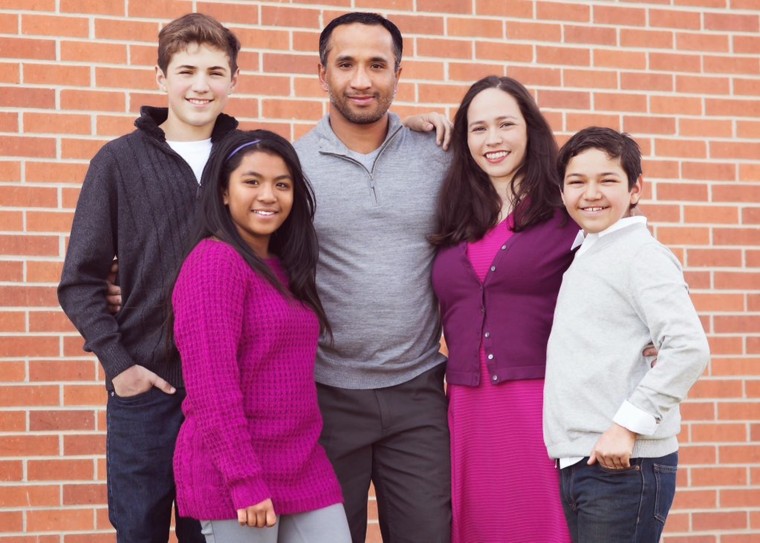Jenny Srey and her husband, Ched Nin, were planning to grow their family in 2016.
But Nin, who immigrated to the U.S. in 1986 as a refugee from Cambodia, was not a U.S. citizen. A 2010 felony second-degree assault conviction for an incident involving a BB gun had made him eligible for deportation, and in 2016, he was detained by Immigration and Customs Enforcement (ICE).
The detention kicked off an emotionally and financially taxing experience for the family, Srey recalled. She and her three children were anxious, Srey said, and she added that she was diagnosed with depression and insomnia. The family had to pay for therapy as well as thousands of dollars in legal fees.
“Just detention itself is expensive because we had to drive out to see him, we had to accept phone calls, we had to pay for attorneys,” Srey said. “We were trying to do all of that and at the same time maintain our home. It was hard. We had to do fundraisers and we had to ask our family for help just to be able to do all of that and keep our home.”
Srey is one of about a dozen women whose stories are included in a new report from two advocacy organizations detailing the impacts of immigration detention and deportation on Southeast Asian American communities.
The report, compiled by the Southeast Asia Resource Action Center (SEARAC) and National Asian Pacific American Women's Forum (NAPAWF), found that Southeast Asian-American women suffer in multiple ways as a result of the detention and deportation of a loved one. Many women featured in the report were left to support their families on a single income and experienced a decline in their mental health.
Findings were released Sept. 26 during a Senate briefing and presented at a House briefing on Sept. 27.
“Life under deportation and detention impacts not just the individual with an order themselves, mostly men, but also their entire families — including women, children, and parents,” Quyen Dinh, executive director of SEARAC, said in an email.
According to SEARAC, there are at least 16,000 Southeast Asian Americans with final orders of removal.
Due to the history of conflict between the United States and Cambodia, Laos and Vietnam, the three countries have historically been slower in accepting individuals being deported from the United States.
“As a result, we have seen many community members serve their time and transform their lives, starting businesses, and supporting US citizen families,” Dinh said.
But, Dinh added, those community members may live in a state of "limbo," unsure of whether or not they will be deported.
"Others who are deported leave behind women, children, and parents who depended on them as pillars of their family - providing emotional, mental, and financial support,” she said.
Dinh said the targeting of the Southeast Asian-American community appears to have worsened under the President Donald Trump's administration.
In fiscal year 2017, the Vietnamese community saw a sharp rise in deportations, with 71 nationals deported, compared to 35 in 2016. In the Cambodian community, deportations have averaged about 48 per year over the last four fiscal years.
SEARAC estimates that about 72 Cambodians have been deported this year so far, with 43 deported earlier this year and about 30 removed in late August. ICE did not provide the number of removals to Southeast Asia for 2018 but said full numbers would be released before the end of the year.
Despite the financial and emotional hardships, the report found that the experience has led women to organize advocacy efforts to fight against detentions and deportations.
Srey said she channeled her emotions through the Release MN8 Campaign, which fought the detention of eight Cambodian Americans in Minnesota. Three of the detainees, including her husband, were eventually released.
Dinh noted that while there are many stories of how detentions and deportations affect Southeast Asian American women, the report details those of just a few, along with data from a sample of about 50 families who reached out to her organization in 2017.
SEARAC and NAPAWF hope the report will inspire others to come forward to share their stories, encourage people to become involved in fighting to end detentions and deportations, and bring visibility to an issue and a community that is oftentimes overlooked.
“We hope this report will help lawmakers to understand the true impact of unjust detention and deportation policies and inspire them to champion long lasting legislative solutions that prioritize keeping families together,” she said.
Follow NBC Asian America on Facebook, Twitter, Instagram and Tumblr.



